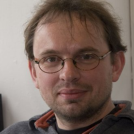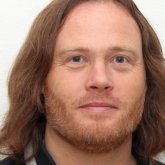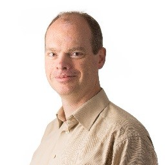In this project, we will combine well-known thermal flow sensing principles with micromachined mechanical sensors that measure the flow through the bending or displacement of a mechanical structure. In this way, we expect that, in addition to mass flow, many relevant gas parameters can be measured, such as thermal conductivity, density, specific heat, and dynamic viscosity.
For the measurement of gas flows, (micromachined) thermal flow sensors are often used because of their high sensitivity, low pressure drop, and relatively straightforward operating principle. However, their response is dependent on the properties of the fluid, especially the thermal conductivity and heat capacity. Micromachined mechanical flow sensors, based on bending or moving microstructures, have been primarily used for specific applications, such as measuring turbulence, where small and fast sensor elements are required. However, their response is dependent on the viscosity and density of the gas. The combination of thermal and mechanical sensing elements in a single device will reveal valuable information on the gas properties and, therefore, on the composition of the gas.
Important drawbacks of mechanical sensors are the fragility of the sensitive mechanical structures and susceptibility to contamination like dust particles. These drawbacks are not present when operated inside flow channels with clean gases, which is the case for the applications addressed in this project. We will focus on two types of sensors:
- miniature probe sensors that can be placed inside larger flow channels, and
- sensors integrated inside microchannels fabricated in the so-called surface channel technology, which allows integration with thermal sensors and even micro Coriolis sensors on a single chip.
In the new project “Flow and fluid composition sensing using integrated drag force flow sensors”, new sensor designs as well as their cleanroom fabrication by silicon micromachining will be investigated. The main challenges are (1) the design and modelling of new sensor topologies, (2) development of the MEMS fabrication processes, (3) fabrication of the sensor chips in the MESA+ cleanroom and (4) evaluation of the resulting performance in flow and gas property sensing in our MEMS measurement lab. The project is part of the KIC FLOW++ programme “Break-through technologies in flow and fluid composition measurement”. It involves close cooperation with flow sensor companies and the TU Delft, where a post-doc will focus on the electronic interfacing of the sensors.
The PhD candidate will work at the Integrated Devices and Systems (IDS) group within the Faculty of Electrical Engineering, Mathematics and Computer Science (EEMCS) at the University of Twente in Enschede, the Netherlands. You will carry out the research at the University of Twente, with guidance from senior scientists and support from a senior engineer. Various teaching activities in your field of expertise may take up to 20% of your time.
Information and application
Are you interested in this position? Please send your application via the 'Apply now' button below before 23 August 2025, and include:
- A cover letter (maximum 2 pages A4), emphasising your specific interest, qualifications, and motivations to apply for this position.
- A Curriculum Vitae, including a list of all courses attended and grades obtained, and, if applicable, a list of publications and references.
For more information regarding this position, you are welcome to contact dr. ir. R.J. Wiegerink via the following email address: R.J.Wiegerink@utwente.nl.
Screening is part of the selection procedure.
About the department
The IDS group belongs to the Faculty of Electrical Engineering, Mathematics, and Computer Science. The research group studies electronic and electromechanical components and develops new concepts for nanoscale materials, devices and systems using nano- and microfabrication techniques. One ambition of the IDS group is to combine its experience in both semiconductor and MEMS technologies to design, fabricate and characterise novel smart sensing devices.
IDS contributes to the MESA+ Institute and has a strong track record in knowledge transfers to the semiconductor and sensor industry. MESA+ is the largest research institute of the University of Twente. The institute trains graduate students and PhD students and conducts research in the fields of nanotechnology, microsystems, materials science and microelectronics. Unique of MESA+ is its multidisciplinary composition.
About the organisation
The faculty of Electrical Engineering, Mathematics and Computer Science (EEMCS) uses mathematics, electronics and computer technology to contribute to the development of Information and Communication Technology (ICT). With ICT present in almost every device and product we use nowadays, we embrace our role as contributors to a broad range of societal activities and as pioneers of tomorrow's digital society. As part of a tech university that aims to shape society, individuals and connections, our faculty works together intensively with industrial partners and researchers in the Netherlands and abroad, and conducts extensive research for external commissioning parties and funders. Our research has a high profile both in the Netherlands and internationally. It has been accommodated in three multidisciplinary UT research institutes: Mesa+ Institute, TechMed Centre and Digital Society Institute.





